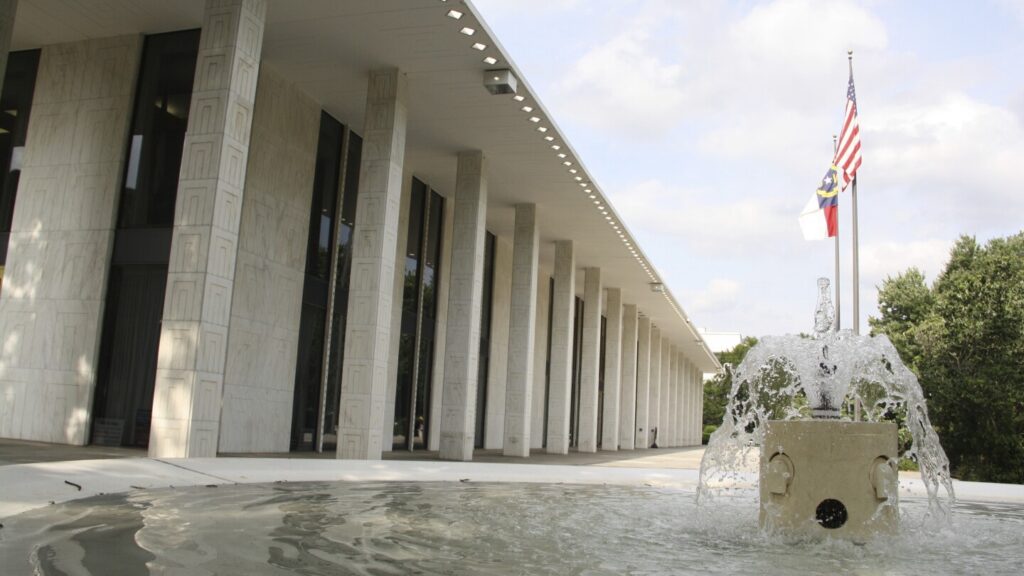RALEIGH, N.C. (AP) — After fiery debate, a North Carolina bill advanced through the state House on Wednesday that gives parents a bigger say in which books are allowed — or banned — from the state’s public and charter schools.
Now, the bill heads to the state Senate. The legislation had a short trip through the House as Republican lawmakers quickly ran it through committees the day before. It’s also an issue the Trump administration has signaled it supports.
A few days after President Donald Trump took office, the Education Department denounced what it called former President Joe Biden’s “book ban hoax.” The agency dismissed 11 complaints on book challenges and removed a coordinator charged with investigating those bans, saying it was the first step in “restoring the fundamental rights of parents to direct their child’s education.”
Book bans have reached record highs over the past five years, as several states across the country have passed their own legislation barring some subjects from school libraries and letting parents submit book challenges. Their supporters say book bans protect students from being exposed to explicit material in school and empower parents within school systems.
In some conservative states, teachers and librarians could face criminal penalties for what some consider “obscene” material found in public schools. Over the past year, a countermovement in Democratic-led states has outlawed book bans instead.
North Carolina’s bill would charge a public school superintendent with creating a “community library advisory committee” made up of five parents and five school employees. That committee would then make recommendations for which books or films should be approved or denied.
Those recommendations would be published on school websites, where community members could submit their own objections to content slated for approval. The governing body of the district, typically the school board, would then decide on the recommendations at a meeting, according to the bill.
Some GOP legislators spoke in support of the bill and adamantly denied that the legislation facilitated book bans. Instead, they said parents could choose to buy books or check out books from public libraries if they weren’t available at their school.
“This is not a book ban,” Cabarrus County Republican Rep. Brian Echevarria said. “This is putting things out of the reach of children.”
Several Democratic House members vehemently opposed the bill, saying it could lead to censorship within schools. They argued that lawmakers shouldn’t play a role in determining what books can be allowed in school libraries — which was met by applause from attendees in the chamber gallery.
“Let’s stop tasking our superintendents with edicts from Raleigh that drain their time from actually educating our children,” said Democratic Rep. Amos Quick of Guilford County.
Debate was eventually cut off by GOP leadership using a parliamentary procedure.
Schools that do not comply with the legislation could be subject to civil penalties by parents or residents who sue. The State Board of Education would also be responsible for maintaining a public database of library materials that have been rejected.
Read the full article here


